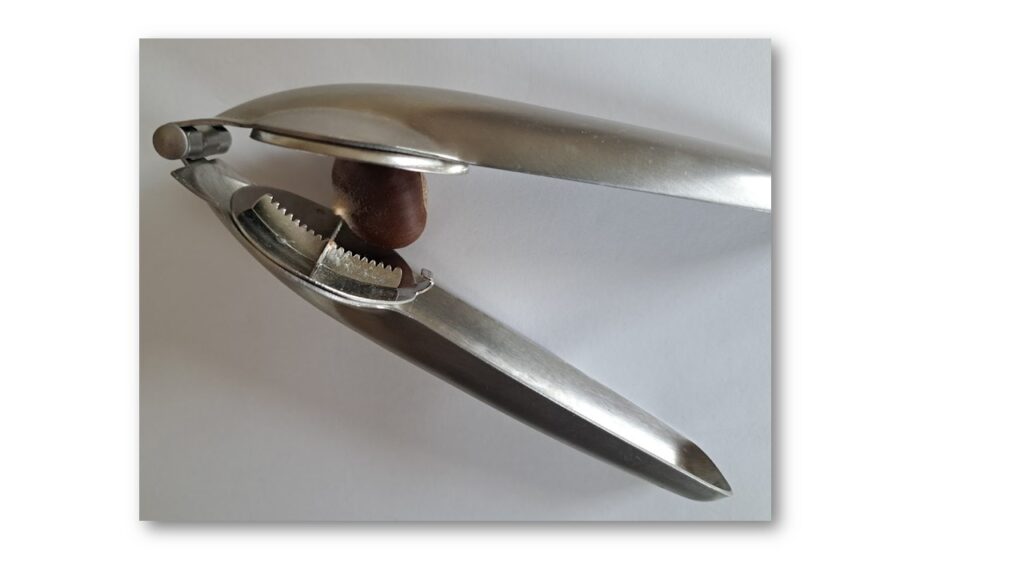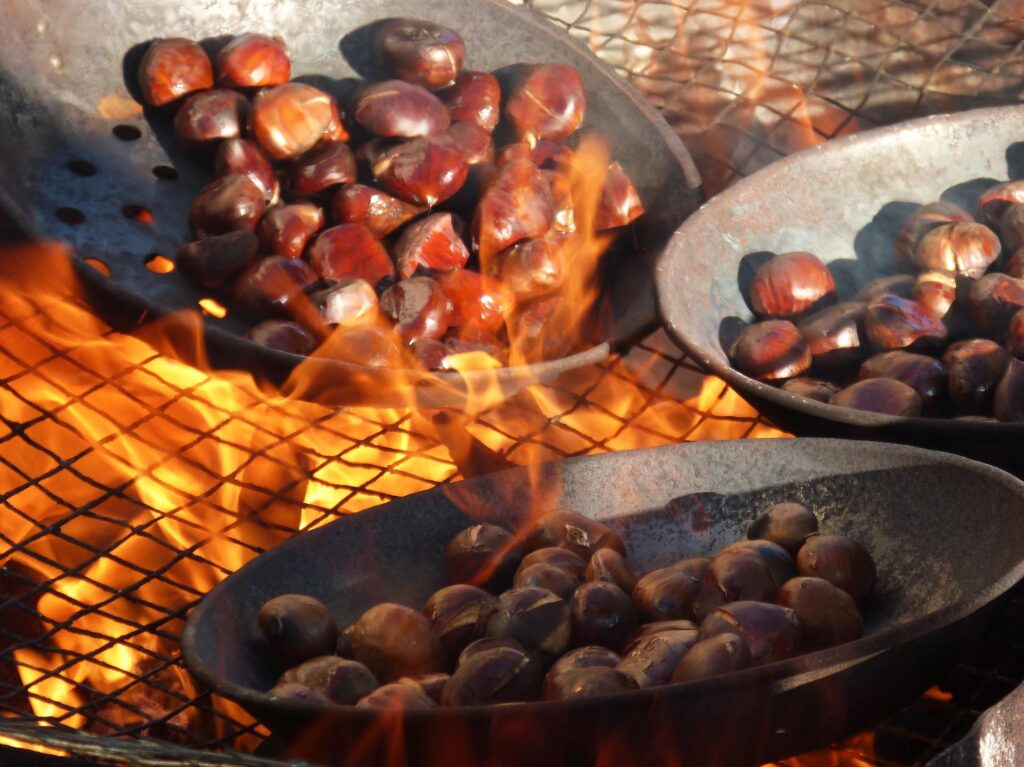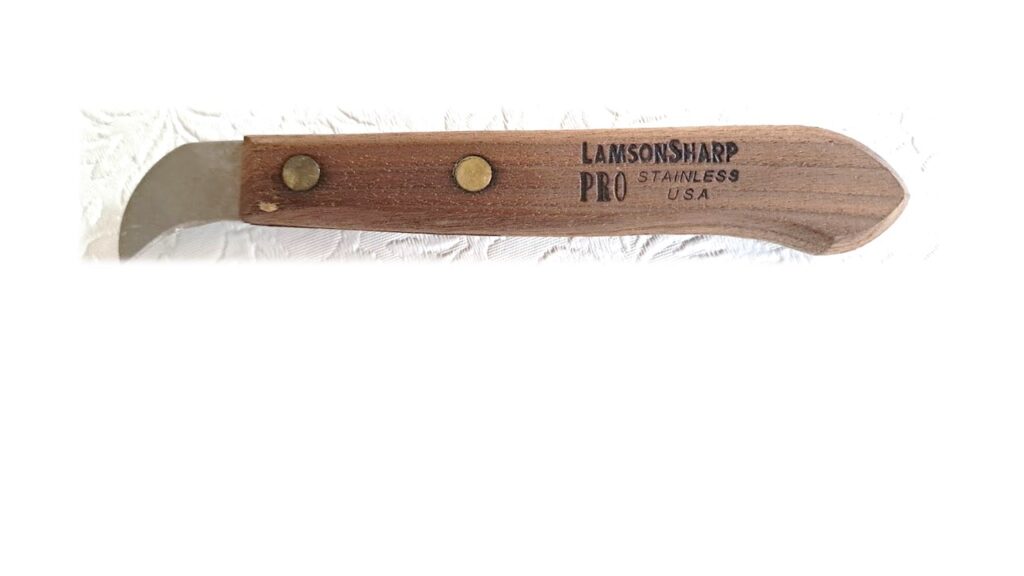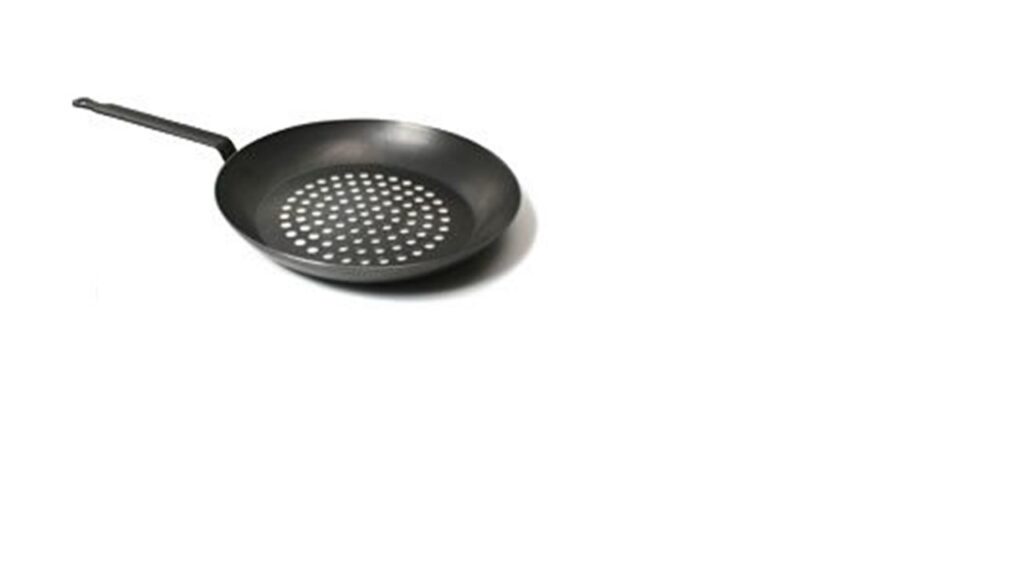Storing and Cooking
Storing and Preparing Chestnuts
Keep your fresh chestnuts refrigerated in a mesh bag, paper bag or other perforated or open-top container. The optimum temperature is just above freezing. Fresh chestnuts continue to release moisture that will condense in a sealed plastic bag or sealed container, and this can lead to spoilage.
Newly picked chestnuts have an outer shell that is firm and the chestnut meat on the inside is firm and crisp. As the refrigerated chestnuts begin to dry, the outer shell develops a little “give” or flex when pressed with one’s thumbnail. With drying, the sugar content of the chestnut increases and the nutmeat becomes sweeter and less crisp when cut into. We find chestnuts at this stage exceptionally delicious when peeled and eaten raw. Setting some chestnuts out on the kitchen counter for a few days before you cook with them or eat them raw makes them particularly tasty.

Once you have cut or scored the outer chestnut shell, you can boil, steam, microwave, or bake chestnuts to soften the outer shell and make the nutmeat easy to remove.
Roasting chestnuts on an open fire is a time-honored way to enjoy them. You can fire-roast scored chestnuts on an open fire or a bar-b-que grill. Flavorful roasting is facilitated using a special chestnut roasting pan, an old-style popcorn roaster, or an iron skillet.

The most important thing to remember when cooking chestnuts is to
CUT OR SCORE THE OUTER CHESTNUT SHELL BEFORE COOKING!
The chestnuts have a high moisture content. When heated to the boiling point, the internal steam that builds up inside the chestnut can explode the outer shell. When that happens, it is invariably surprising and can be quite messy. So, if you will be boiling them, oven-roasting them, pan-frying them, microwaving them, or roasting them on an open fire, CUT THE OUTER SHELL BEFORE YOU START.
You can cut an opening in the outer shell with a kitchen knife, garden sheers, a special chestnut knife, or a special utensil designed specifically for scoring chestnut outer shells.

Once you have cut or scored the outer chestnut shell, you can boil, steam, microwave, or bake chestnuts to soften the outer shell and make the nutmeat easy to remove.

